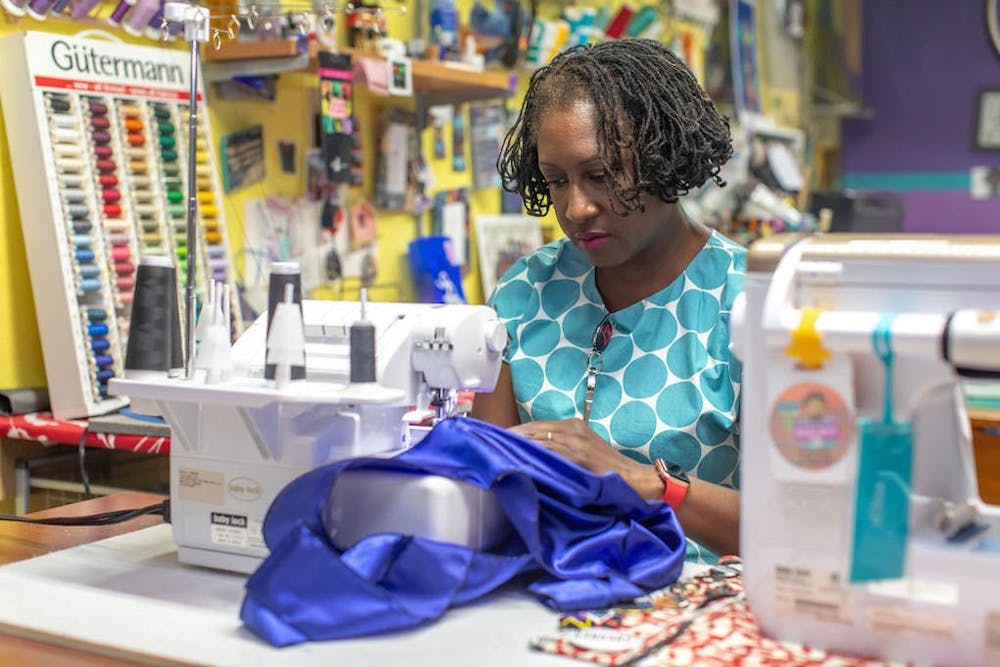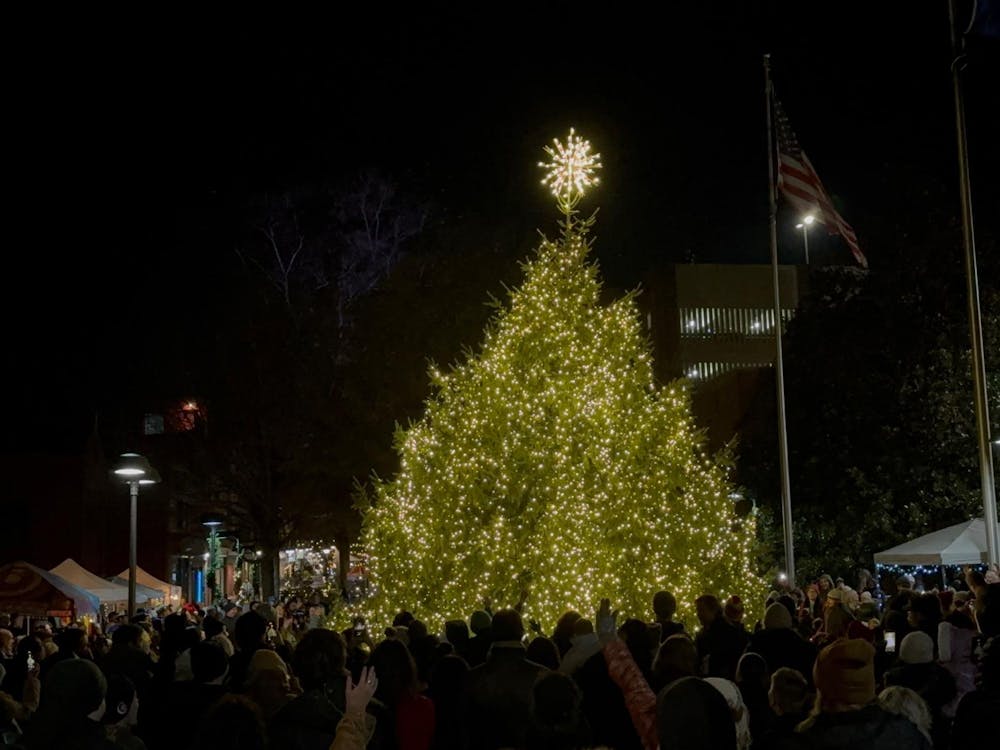In the heart of Charlottesville, a vibrant and close-knit community of creative souls gathers to celebrate the art of stitchcraft. Black Women Stitch, a local award-winning sewing group with over 20,000 followers on Instagram, stands as a testament to the resilience, creativity and cultural richness of Black women in the realm of textiles.
Black Women Stitch — “the sewing group where Black Lives Matter” as their slogan reads —
offers both in-person and virtual events to cover the organization’s local Charlottesville community as well as its national network. The organization was founded by Dr. Lisa Woolfork, English professor and sixth-generation sewist, in 2018 as a space where she could pursue needle art without “having to audition [her] humanity.”
Woolfork has leaned on sewing as a creative outlet since her time in graduate school, so she turned to her previous sewing group for support after the “Unite the Right” rally. However, she was met with uneasy glances and ultimately rejection.
“What I wanted was a recreational space that could both be a site for archiving the Black creative experience while also providing a type of communal resource for people to learn more about the intricacies of Black creativity,” Woolfork said. “I built what I needed in a time when I was looking for a type of peace, a way that I could step away from some of the demands of my daily work life.”
And so, Black Women Stitch was born. From Sewalong events to the “Stitch Please” podcast, Black Women Stitch meets the unique needs of sewists with virtual events that allow sewists to craft in company and lively interview podcasts filled with crafting wisdom and advice. Anyone can access free guides, newsletters and events through the Black Women Stitch website, and Patreon supporters can unlock behind-the-scenes materials including videos of podcast episodes and excerpts from Woolfork’s current book.
Inspired by an in-person event to continue the “camaraderie, sisterhood and solidarity” shared at the event, “Stitch Please” sparks sisterhood through conversation, providing a meeting place for Black creatives to foster conversations and archive their stories. Among over 200 “Stitch Please” episodes is “A Sewing Chat with Rita Dove,” featuring fellow English professor and accomplished sewist Rita Dove. Dove pointed out that her writing career and her sewing hobby intersect due to each realm’s reliance on tension.
Woolfork enthusiastically recalled her findings from her conversation with Dove.
“Tension can sometimes hold poetic language together, and tension is absolutely necessary for any type of stitch,” Woolfork said.
Woolfork said that revered academics like W.E.B. Dubois and Frantz Fanon have been using sewing and textile metaphors for years, such as “the fabric of American democracy.” As language and needlework weave together, sewing reveals itself to be “a critical apparatus” that changes our perceptions of the world according to Woolfork.
Woolfork demonstrates that stitchcraft and its surrounding community challenge modern understandings of feminism and equity. She points out the “gender distinction” between fine art and craft, meaning that handwork by men — such as culinary arts — is praised as fine art while the same work performed by women — such as cooking — is seen for its domestic functionality rather than its beauty.
“When someone’s willing to pay $17,000 for a quilt that hangs on the wall and wants to give you $17 for a quilt that you made for your bed…that’s how I think that sometimes gender can operate as a way to minimize and keep people poor,” Woolfork said.
Woolfork and Black Women Stitch approach feminism with intersectionality, not just creating a space for women but uplifting Black female artists. According to Woolfork, sewing and textile arts have been marketed towards white women throughout American history, despite these practices being done by women of color for centuries.
She referenced the 1939 USDA study, “Women’s Measurements for Garment and Pattern Construction,” which recorded the measurements of 14,698 white women to create sewing patterns that are still used today.
“If they had included other women of color…from the start, we might be in a very different position now with how our clothes fit,” Woolfork said. “There’s a Black feminist theory that states that when you center the most marginalized and make sure their needs are met, you have created a system that is more just for everyone.”
Fueled by Woolfork’s contagious passion for sewing, Black Women Stitch is the beating heart of the stitchcraft community, an inspiring and uniting force that proves that anyone can make anything. Woolfork explains her philosophy that powers both her own sewing journey and the growth of Black Women Stitch.
“Everything you have on, everything you are wearing was made by someone,” Woolfork said. “Why not you?”







